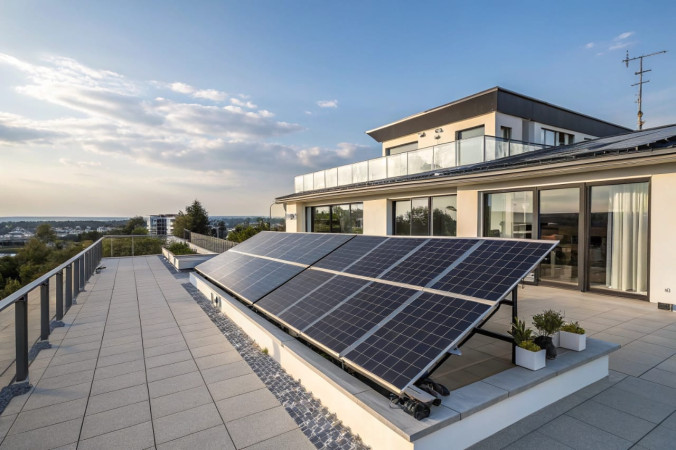
Follow India Renewable Energy News on WhatsApp for exclusive updates on clean energy news and insights
Trends and Projections in Europe 2024: Key Insights from the European Environment Agency (EEA)
Feb 19, 2025
The European Environment Agency (EEA) has published its "Trends and Projections in Europe 2024" report, highlighting significant developments in Europe's efforts to reduce greenhouse gas (GHG) emissions and accelerate the transition to renewable energy. The report, authored by Sabine Gores, Hannah Förster, and Nele Renders, outlines both the progress and challenges the European Union (EU) faces as it strives to meet its climate goals.
One of the most notable achievements is the EU's record 8% reduction in GHG emissions in 2023, marking the largest drop in decades, excluding the 2020 pandemic-related dip. This reduction brings EU emissions to 37?low 1990 levels, demonstrating the substantial impact of recent policies and energy shifts. The energy supply sector played a crucial role in this reduction, contributing a 19% year-on-year decrease in emissions due to significant growth in renewable energy and a reduction in energy consumption. Sectors such as industry and buildings also made meaningful contributions to the overall emissions drop.
However, the transport sector—now the largest source of emissions in the EU—saw only a modest 1% reduction in emissions, despite the growing adoption of electric vehicles (EVs). This highlights the challenges the EU faces in decarbonizing transportation, even as it makes progress in other sectors.
Looking ahead, the EU faces significant hurdles in meeting its 2030 target of a 55% emissions reduction. While the overall emissions decrease is substantial, more accelerated action is needed, particularly in the Effort Sharing Regulation (ESR) sectors, which include transport, buildings, agriculture, and waste. Emissions reductions in these sectors have been slower, underscoring the need for more robust policies and measures to close the remaining gap.
On the renewable energy front, the EU made progress in 2023, with renewables accounting for 24.1% of the energy mix. While this is a positive trend, it is still far from the 2030 target of at least 42.5%. Additionally, both primary and final energy consumption fell in 2023 compared to 2005, but the report emphasizes the need for a more rapid acceleration in energy savings to meet the 2030 goals.
The report also highlights several challenges that need to be addressed. These include the lagging emissions reductions in the ESR sectors and the need for additional policies to close the gap to the 2030 climate targets. The EU must also maintain a clear post-2030 framework to ensure sustained progress toward climate neutrality.
Despite these challenges, the report underscores the benefits of the EU's climate efforts. The record emissions reduction in 2023 demonstrates that significant changes are possible with the right policies in place. The transition towards renewable energy in the energy supply sector is successfully underway, and significant emissions reductions are achievable through existing and planned policies. While progress has been made, the need for continued action remains urgent to ensure the EU meets its long-term climate goals.